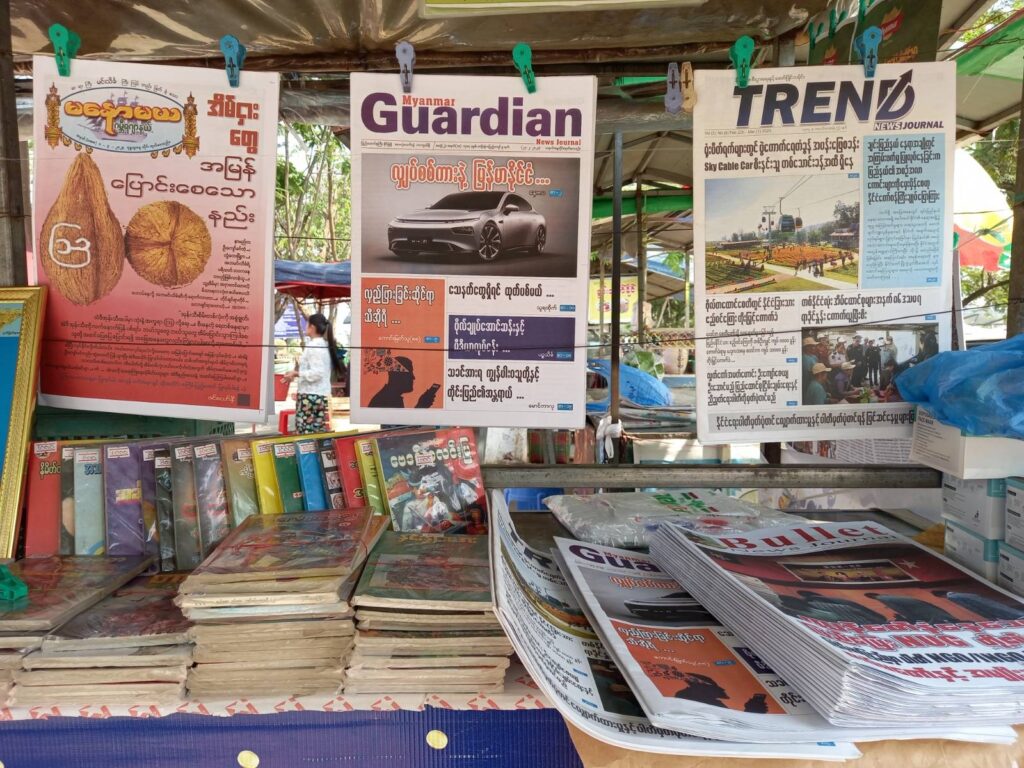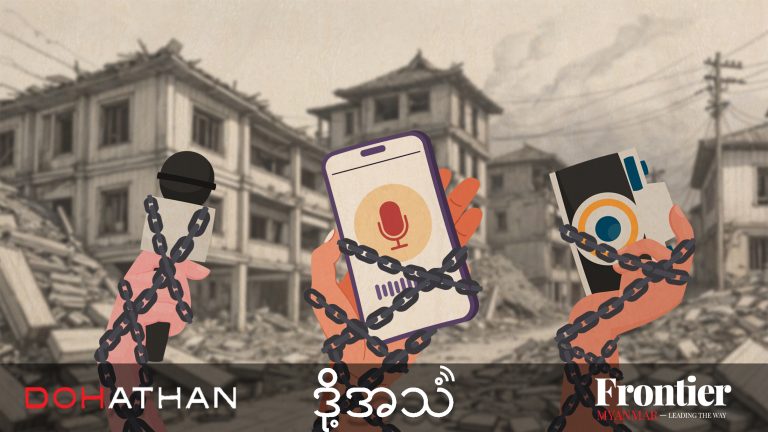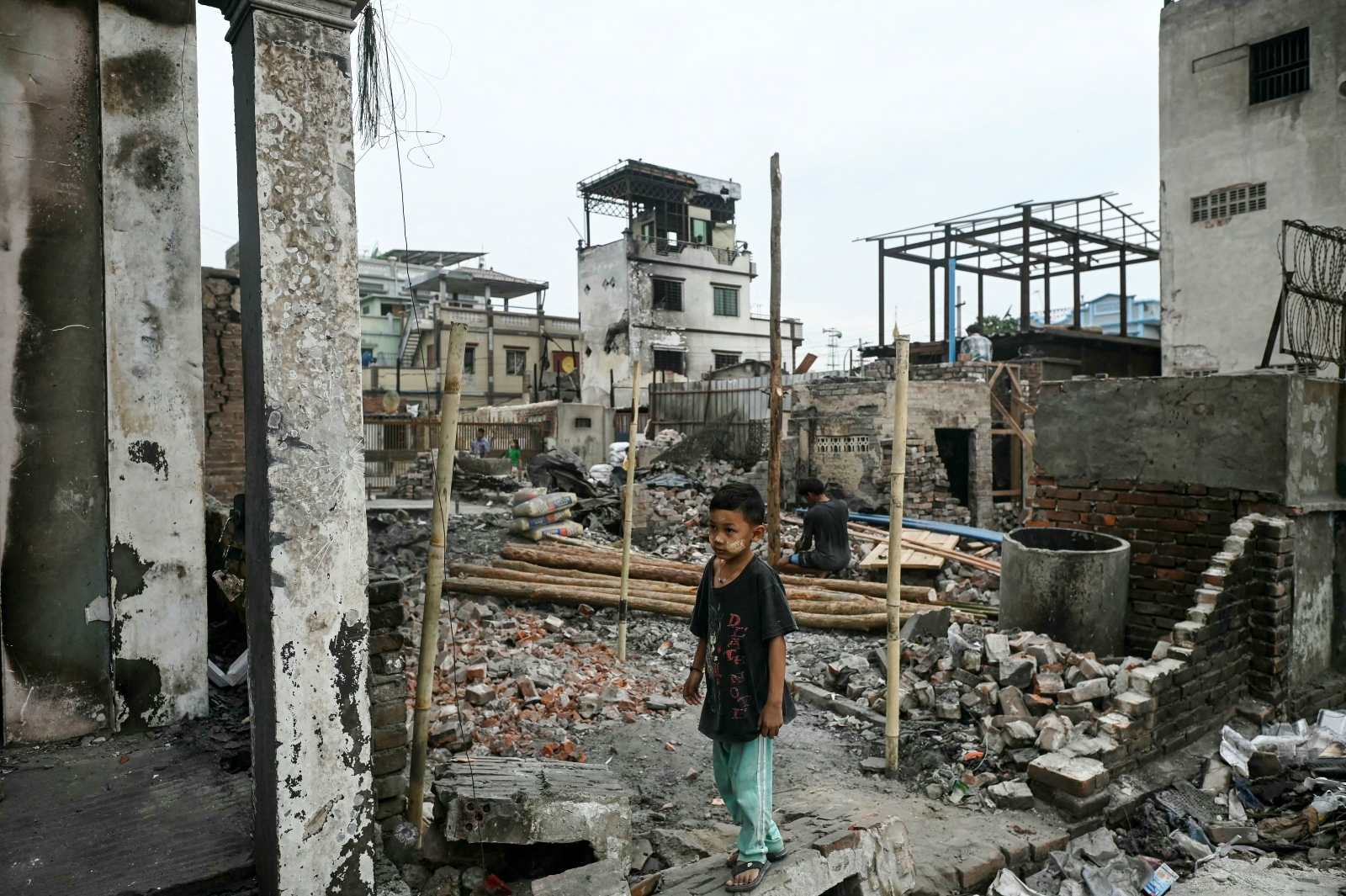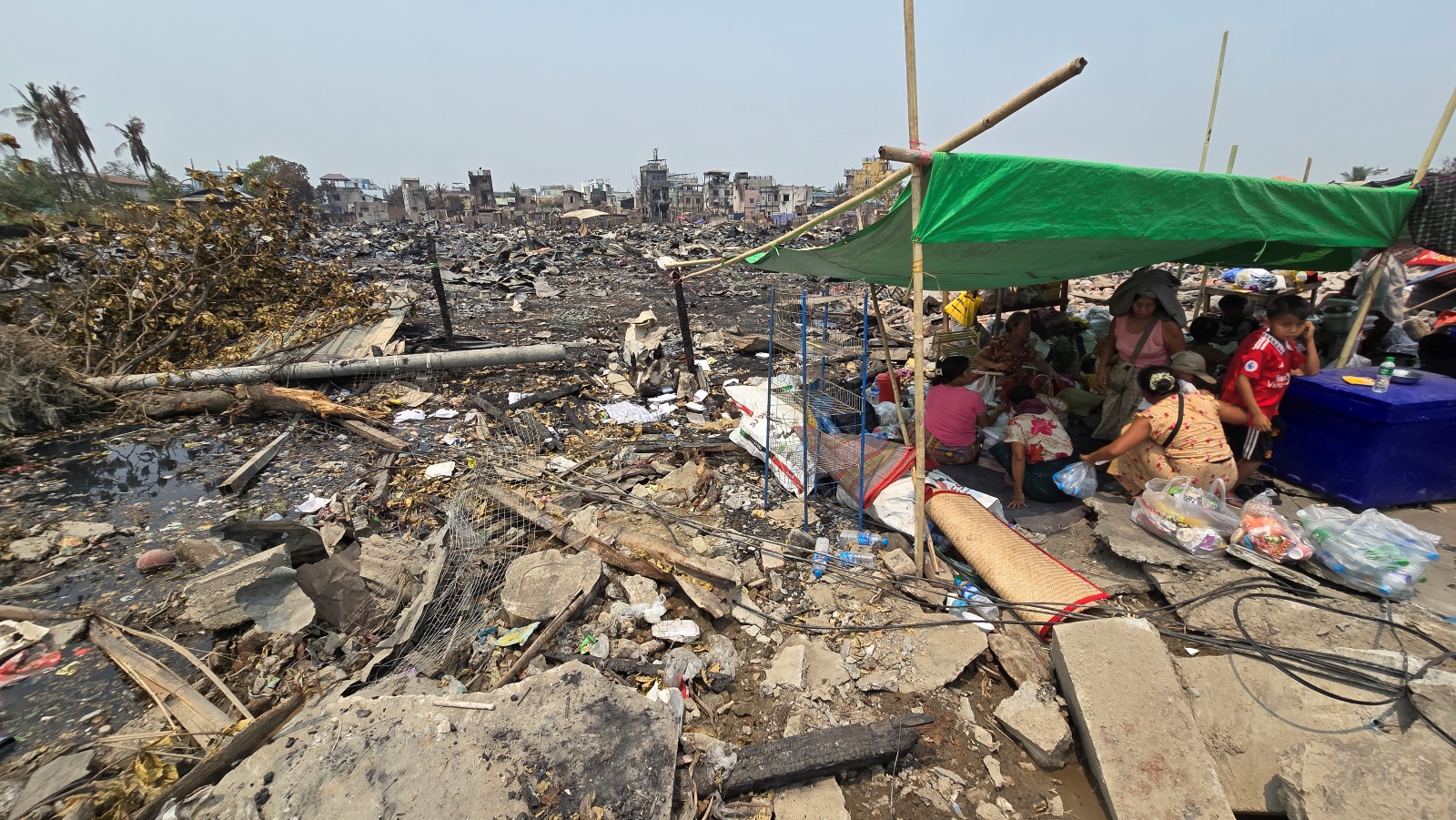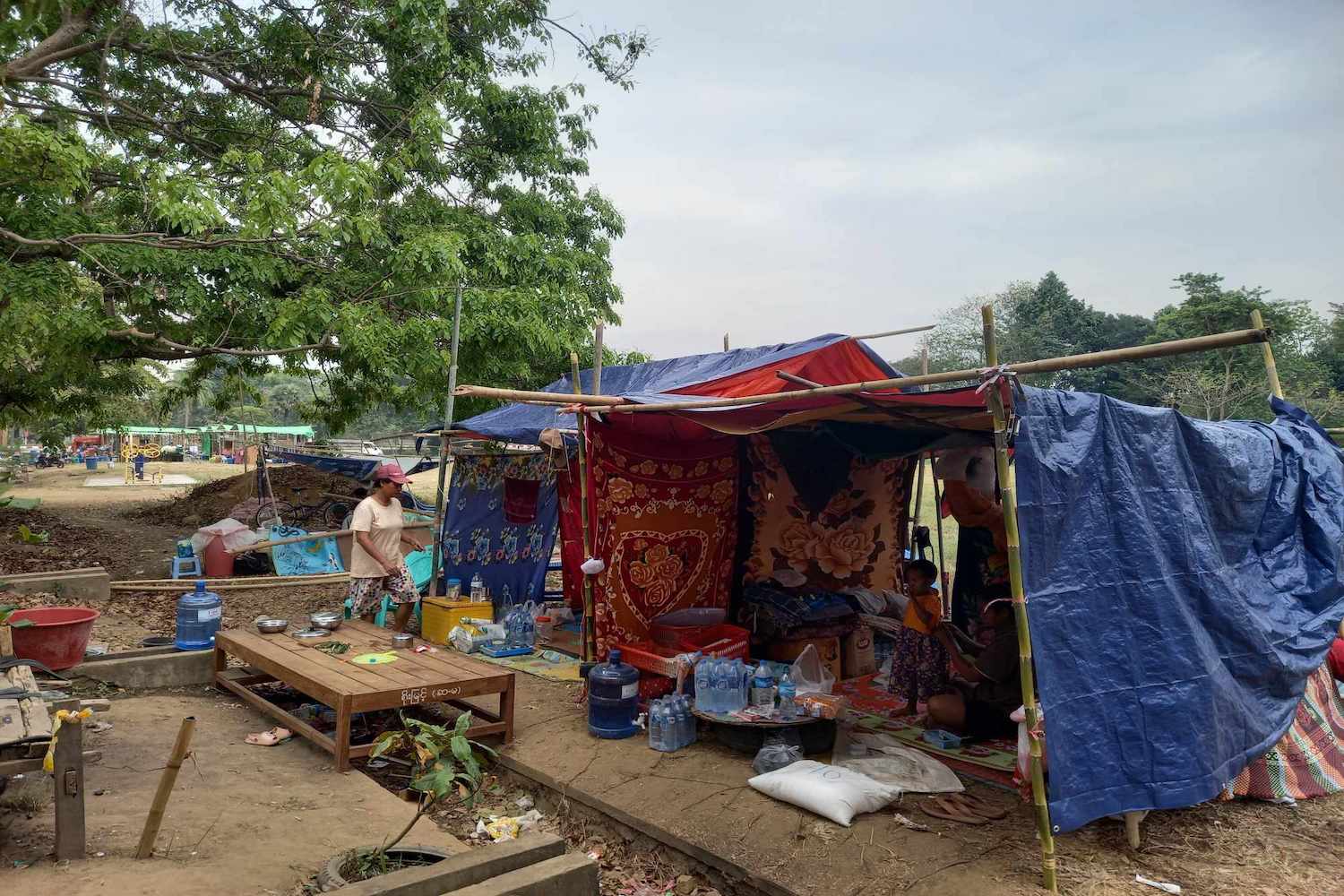Independent journalists risk death and prison in Myanmar, but the military and its allies are adept at finding media lackeys willing to toe the line and parrot their propaganda – for a price.
By FRONTIER
Each time Ko Zaw* goes down to Nay Pyi Taw’s popular Myo Ma market, and sees those familiar faces, he boils with rage. Adding insult to injury, he says he must hide from them or risk arrest.
“They are cheats and moneygrubbers who don’t deserve to be called journalists. In the old days I would have looked them in the eye and cursed them no end. But now I could be in big trouble if they point the police in my direction,” Zaw told Frontier, speaking with emotion.
Zaw was once a well-known journalist in the Myanmar capital with over 10 years of experience in his trade, becoming a star parliamentary reporter for a top media outlet. Though not a Nay Pyi Taw native, he moved there for his job, raising his family in the isolated and strange town. He became a familiar face in the streets, government ministries, party headquarters and both chambers of parliament.
In those days, the sprawling military-built town, with its vast and often empty boulevards, was the place to be for journalists, as much as the commercial centre of Yangon to the south. Meeting in teashops, exchanging notes and arguing, they would compete for scoops as the country tentatively emerged from decades of military rule. Nay Pyi Taw reporters felt like respected members of the community, always on the cusp of the latest breaking news and inside gossip.
But everything changed after the 2021 coup. Ko Zaw’s newsroom went into exile as colleagues were arrested. Many of his friends left the heavily fortified city, but Ko Zaw’s family now felt at home in Nay Pyi Taw, so he kept his head down and changed his profession.
As they say in Myanmar: when the throne changes, so do the watchdogs. Nay Pyi Taw’s government offices and press conferences are once again full of reporters – some familiar faces, but many new, and all pro-military and registered under the State Administration Council’s Information Department. Ko Zaw said after passing a background check, most acquired cars and moved to protected housing and apartments in the city’s best areas.
“But I am sure they can’t move outside the capital. If they did, PDFs or other people against the military would attack them,” Zaw adds.
After the military violently crushed mass peaceful protests shortly after the coup, many turned to armed resistance, forming People’s Defence Forces across the country, which have routinely assassinated alleged military informants and collaborators. On January 24, two PDFs in Tanintharyi Region announced that they shot dead a reporter with the military-run Myawady newspaper in Yebyu Township, claiming he was an informant.
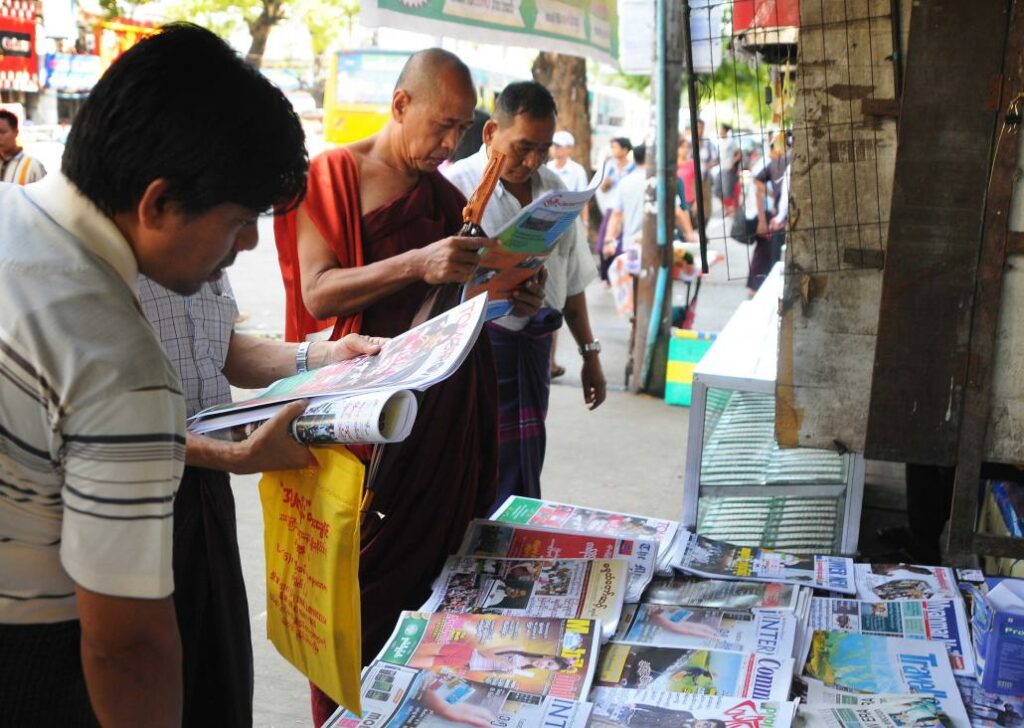
Empty shelves and leading pressers
A Frontier reporter contacted vendors in Nay Pyi Taw and found they only sold newspapers connected to the military or its proxy political party, the Union Solidarity and Development Party, including Myawady, Global New Light of Myanmar, the Mirror, the Myanmar Herald and Myanmar Guardian.
Papers that aren’t as fervently pro-military, but still avoid overt criticism – like Daily Eleven and The Standard Time Daily – are not as easily found in the capital as they cannot deliver copies on time and will not take back remainders, making them unpopular with vendors.
Most news agents say their top selling title is Bullet News Journal, published by “Bullet” Hla Swe, a former military officer and USDP lawmaker who is now the party chair for Nay Pyi Taw. He earned his moniker when, in a parliamentary debate on a peace motion in 2013, he threatened the Kachin Independence Army, saying: “If we can’t invite them with a golden hand, we will invite them with a bullet.”
When Bullet News Journal first came out in 2016, it built a reputation for relentlessly criticising Daw Aung San Suu Kyi and the National League for Democracy government. It temporarily changed its name to Golden Hand when Hla Swe went into hiding in 2019, after being charged with sedition for publicly calling for the United States to bomb Myanmar and kill its civilian leaders. Like ultranationalist monk U Wirathu, Hla Swe turned himself in shortly before the military coup and was released a few months after the military seized power, since becoming a mainstay at the regime’s press conferences.
There, he asks leading questions to SAC spokesman Major General Zaw Min Tun, like whether the regime will bring more corruption charges against Aung San Suu Kyi or how it will remove the Rohingya from Myanmar. He has urged other journalists to ask questions respectfully and behave as if parliament were in session.
A Bullet News Journal employee told Frontier that the outlet is partly funded by both the military and USDP and carries advertisements for their businesses. The paper’s weekly budget amounts to K5 million (US$2,375) and copies are delivered to military compounds in big cities such as Nay Pyi Taw, Mandalay and Yangon.
Hla Swe isn’t the only reporter asking pre-approved questions at pressers, according to one reporter who attended several times last year before resigning.
“It’s just complete rubbish, and reporters have to submit questions in advance,” he said.
But sometimes, seemingly unapproved questions slip through the cracks, with serious consequences.
In November last year, two journalists known for being pro-military were arrested following an SAC press conference.
U Win Oo, a former Bullet News Journal reporter who became editor-in-chief of New History for the People, referred to Aung San Suu Kyi by the widespread respectful title “Mother Suu” when asking about her prison term. U Zaw Min Oo, chief reporter of Tae Pyaw News Journal and a former employee of the state-owned Mirror newspaper, asked if the Nationwide Ceasefire Agreement between the Karen National Union and the military had broken down.
“Zaw Min Tun was in a bad mood that day and because he didn’t like those questions, it seems he gave the order to the police. Those journalists were arrested at the motorcycle parking lot on their way out,” said a source close to the Nay Pyi Taw media community.
According to Reporters Without Borders, there are currently more than 70 journalists and media workers in prison, and at least four have been killed by the military since the coup.
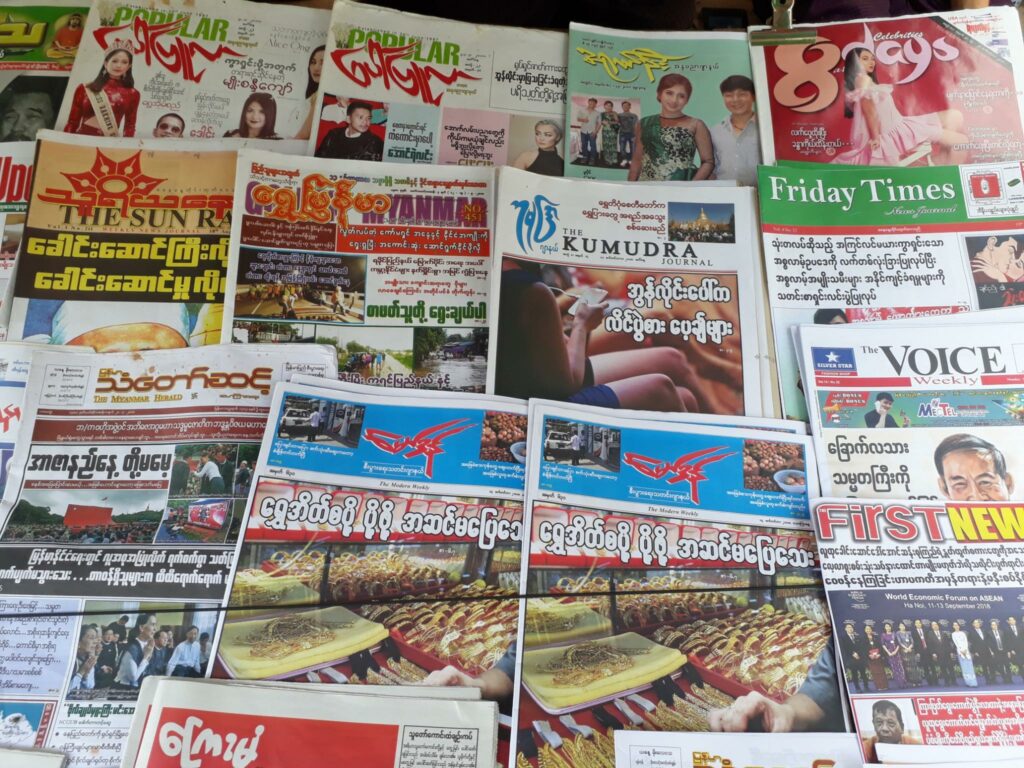
Buying online space
Online propaganda is also promoted by the military and its associates, through Facebook, Telegram, VK and YouTube, where PDFs and the parallel National Unity Government are repeatedly labelled as terrorist organisations and blamed for civilian casualties. Social media is even used to dox those resisting military rule or to celebrate the deaths of PDF fighters, often with gory pictures.
Khit Thit Media, a pro-resistance news agency, ran an expose in December 2022 listing the media outlets that attended the military council’s press conferences and regularly wrote pro-military articles, highlighting 22 Facebook pages, 11 Telegram and 10 YouTube channels, six news websites and two VK accounts.
Sources who recently worked in the SAC’s propaganda department told Frontier that the newly reconstituted Ministry of Information is funding the creation of social media outlets to spread their propaganda, and that some nationalists and journalists have been told to submit proposals to the ministry.
Journalists were asked what kind of news they would report and on which social media platforms. “We gave them a publishing schedule and if they accepted, we immediately released the money to launch the online media,” a source said.
He said the ministry currently provides at least K2.5 million per group as initial capital and is supporting about a dozen groups. In addition, well known officials from the SAC and wealthy USDP members give pocket money to journalists who write favourably about them.
A veteran journalist, who resigned from the Myanmar Press Council in protest after the coup, said it is hard to know for certain which pro-military journalists are being paid, but that any reporter living in housing provided by the junta should be punished when Myanmar regains democracy.
“There is a stark difference between those who love the media and those who use the media for personal gain,” he said.
Frontier has learned, however, that there are rumblings of discontent over a funding shortfall for pro-military media in Nay Pyi Taw.
Sources said the USDP has started recruiting journalists to cover campaigning for planned parliamentary elections, possibly slated for later this year, but funding has been substantially reduced from previous years.
They say the USDP mounted a similar media operation during the 2020 campaign, which it lost in a landslide to the NLD, paying from K50 million to K100 million to media outlets for filming and distributing party propaganda. But this time payments are to be cut to K10 million.
“Since there is no rival party in this year’s election, the USDP is already certain to win. That’s why they don’t care as much about media coverage,” a source said.
Propaganda and disinformation proved convincing to members of the pro-democracy movement during the Rohingya crisis, who often parroted the military’s lies and hate speech. But similar efforts following the coup have seemingly failed to win new converts. The propaganda has, however, been an important lifeline in holding onto the few supporters the military has left.
A high-ranking judge working in the junta’s justice department in Nay Pyi Taw said he knows the media he consumes is pro-military propaganda but insisted other media outlets are also publishing propaganda, just for the other side.
“Right now, propaganda is everywhere,” he said, comparing the situation to the way Russian and Western media outlets report differently on the war in Ukraine. “I don’t believe either side, but I prefer to read the government’s news because it’s more useful for me.”
The judge also said other state employees routinely warn against reading other media outlets, saying that they are “destroying the peace of the country”, and that to read or share these articles would make him stand out in a dangerous way.
“I honestly miss the old days when I could read whatever journal I want,” he said.
*denotes a pseudonym has been used for safety reasons


